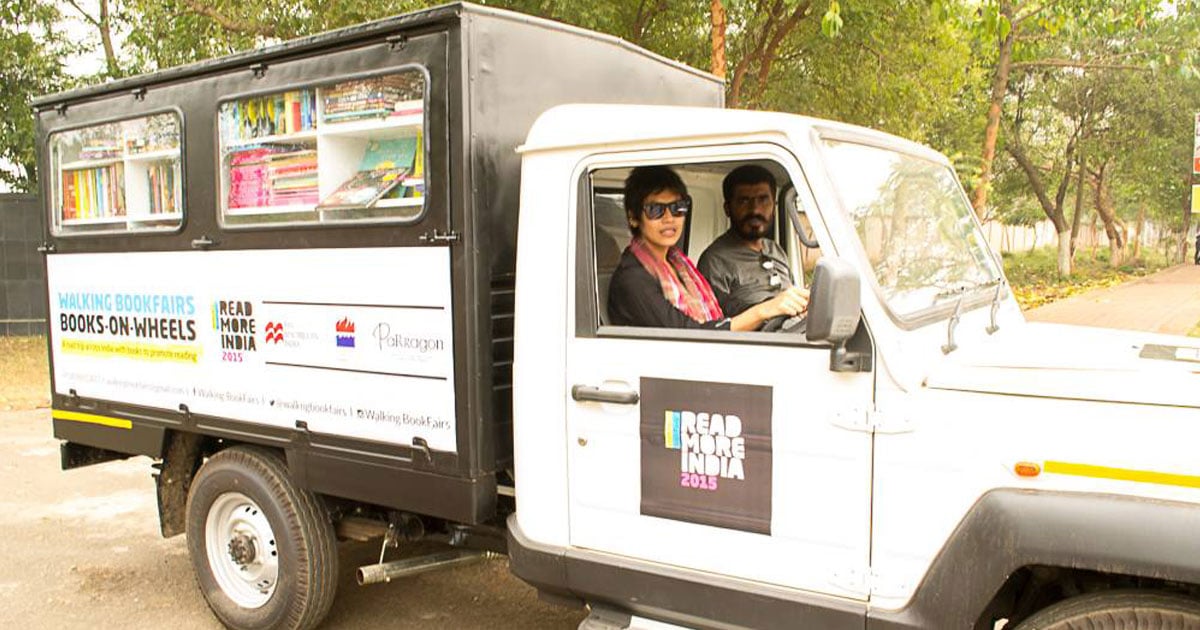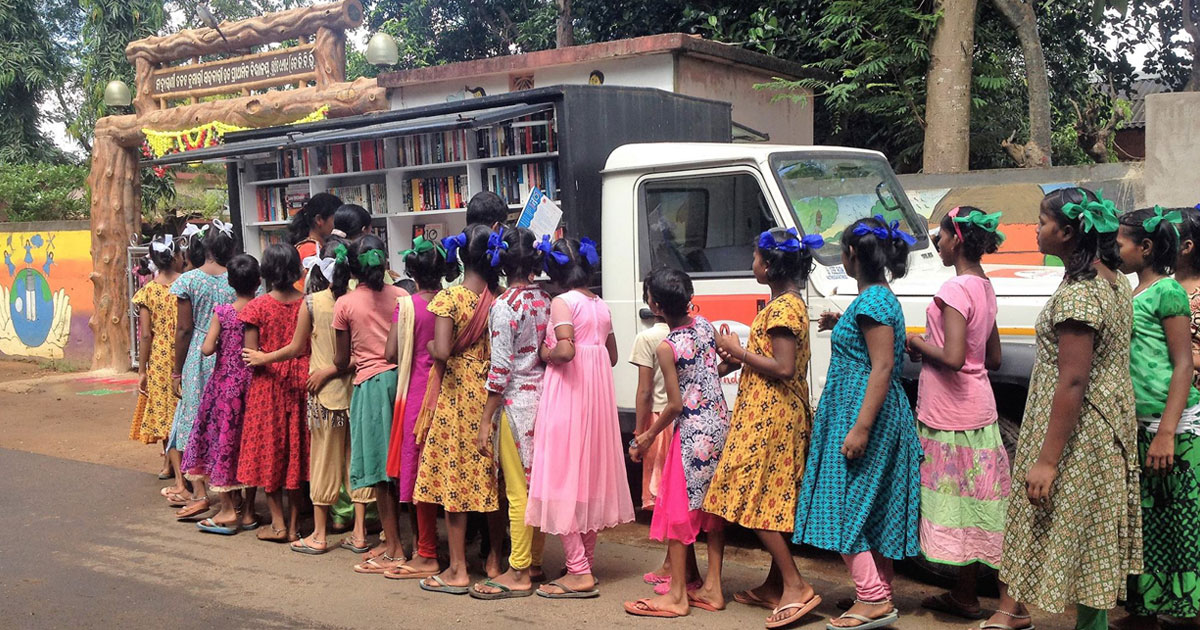Lately, Facebook has been featuring ads of independent businesses benefiting from networking through the social media giant. Of them, a particular ad that shows a woman procuring old and new books and shelving them in her van that she drives to several places has created quite a buzz.
But that’s not something that they have conceptualized on their own but is actually a replica of the work of a team of two people who have been selling books in their van for several years now.
Akshaya Routray and Satabdi Mishra have been reaching out to thousands who have no access to books in our country through a ‘traveling library’ named Walking BookFairs. By now they have traveled over 35,000 Km across India touching 40+ cities, spreading the love for reading.

Now the issue is Facebook used their work as an ad without taking any consent from them or showing any form of support by any means. For this, the two founders have called out the company.
Here’s what they have to say.
Hi! I am Satabdi. I have been driving around India, in a bookmobile, for the last seven years. In the 35,000…
Posted by Satabdi S on Saturday, April 3, 2021
They have had a hard time keeping up their work and Facebook just vaguely lifted their work is what they have to say.
LifeBeyondNumbers talked at length with the Walking BookFairs team to know more about their work and grievance.
The Beginning
Akshaya (40) and Satabdi (38) met at a bookstore about seven years ago. That’s where and when they started to discuss their love for books and realized that there was a lack of bookstores, and libraries in many parts of India, especially in rural areas.
They decided to lend a hand in addressing the problem but they had insufficient funds. So finally, with whatever little money they had, they set out on foot carrying books in their backpack to bus stops and footpaths in Koraput, Odisha. The area borders Andhra Pradesh and has a considerable amount of tribals who come from villages and remote places. So, they particularly chose places where people from villages or towns could look at books, read and buy them at a discount. And that’s how Walking BookFairs was born back in 2014.
The response was immense and they wanted to go to more places but carrying books in person was not possible. So, with help from a few friends, Akshaya and Satabdi bought a second-hand Maruti Omnivan and began traveling across the state displaying books in public places. They donated books to communities and government schools for them to open up libraries of their own, covering all 30 districts of the state, a distance of 10,000 kilometers. Soon one thing led to another and they opened their physical bookshop in Bhubaneswar in 2015. Their intent has always been to make books affordable and for that, they even slash the MRP.
But they didn’t just stop there. The duo went on a journey across India with a newer and improved version of their previous van. Their aim was to make books accessible to every person in the country through a tour titled ‘Read More India.’ With this and by conducting several book-related activities along their way over the years, they additionally opened a shop in Bangalore.
View this post on Instagram
The Hardships
The biggest challenge the team faced was the fact that people did not understand the importance of reading books beyond textbooks for marks and degrees to get jobs in life. Akshaya and Satabdi hope this initiative encourages and inspires people everywhere to read more storybooks and also bring a change in mindset.
“We see so much happening around us, things like intolerance. It happens because people don’t read. Reading books opens your mind and allows you to appreciate different thoughts.” said Akshaya.
Also once their entire shop was torn down by the municipality recklessly.
All the while, it has been Satabdi who has been driving the bookmobile and for the same, they had to go through a lot. Also, parking the vehicle has been a daunting task altogether.
Sales have not always been good at the bookshops and bookmobile and they had once resorted to crowdfunding to support their initiative which was thankfully a huge help.
In April, during the first nationwide lockdown, books along with bookshops were officially deemed non-essential services, creating a bigger struggle for survival. As a result, both their shops in Bhubaneswar and Bangalore were shuttered. They started wondering if the pandemic would ring in the death knell. Yet they survived.
But just as orders picked up, so did corporate platforms, which severely impacted their sales. After a point, they could not afford the rent and upkeep of the physical space, and their losses started piling up. Despite their landlord offering to cut their rent, they were forced to shut shop. As a last effort, they shared a post on their Instagram profile asking people to buy their unsold stock.
“At once we were flooded with support from our online community. We cracked down on getting orders together, writing notes, talking to visitors, looking for a new space, responding to thousands of messages, running to the post office to send orders, forgetting to eat lunch and dinner, recommending books, and selling them day and night,” Satabdi shared.
Now they have opened up again in a new location in the city and continue to receive orders and deliver across India. Their journey is indeed worthy of being told in over a thousand words so that it reaches the profit-making entities rightly.
When did you last read a book?


